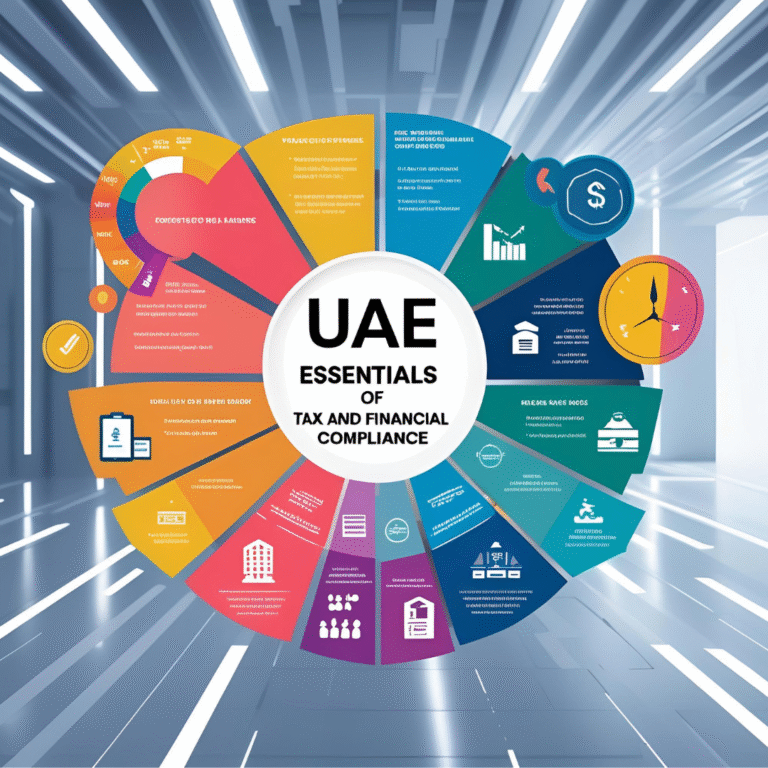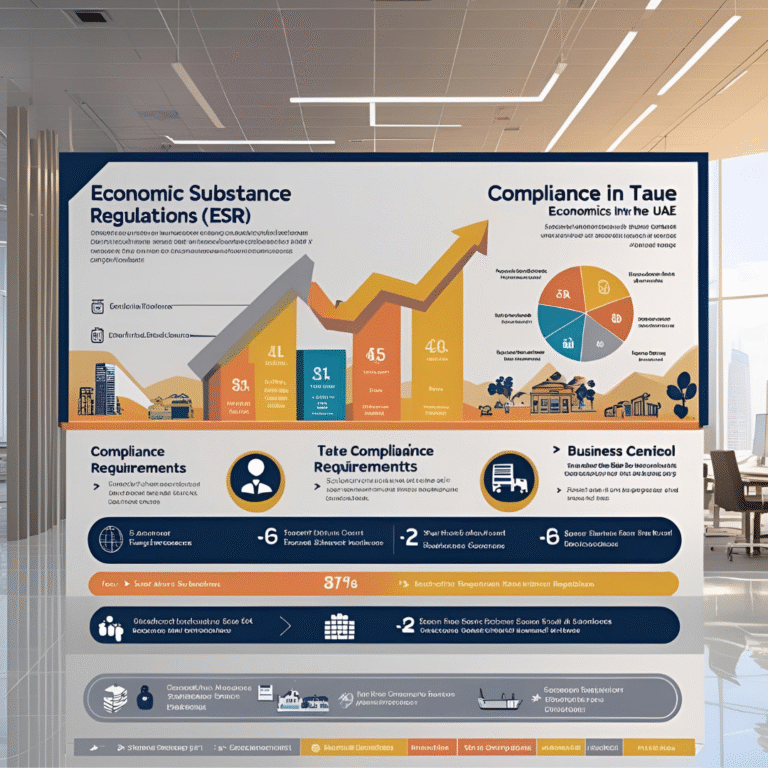Free Zone Entities & Corporate Tax in the UAE: Common Misconceptions Explained

Introduction of Free Zone Entities & Corporate Tax in the UAE:
With the introduction of the UAE’s Corporate Tax regime, the tax landscape for Free Zone Entities & Corporate Tax in the UAE has significantly changed. While Free Zones remain attractive for foreign and local investors due to favorable incentives, many businesses mistakenly believe they are entirely exempt from corporate tax obligations. This misunderstanding can lead to costly penalties and compliance risks. From assumptions about automatic exemptions to confusion over qualifying income and substance requirements, the myths are widespread. In this article, we debunk the most common misconceptions about Free Zone corporate tax and outline exactly what Free Zone businesses need to know to stay compliant in 2025 and beyond.
1. Misconception: Free Zone Entities Are Fully Exempt from Corporate Tax
The Truth: Free Zone entities are not automatically exempt from corporate tax. While many Free Zones still offer 0% tax incentives, eligibility for the 0% rate depends on meeting specific substance and compliance requirements under the UAE Corporate Tax Law.
Key Conditions for 0% Tax Rate:
- Maintain adequate economic substance in the UAE
- Earn only qualifying income (e.g. income from outside UAE mainland)
- Meet transfer pricing and documentation requirements
Failing to meet these conditions could result in losing the preferential tax rate and becoming subject to the standard 9% corporate tax. Companies should regularly assess their qualifying status and document their activities accordingly.
2. Misconception: No Corporate Tax for Free Zone Companies with Mainland Transactions
The Truth: If a Free Zone company earns income from the UAE mainland, that income may be subject to the standard 9% corporate tax rate. Only qualifying income earned outside the UAE or within the same Free Zone or other Free Zones may enjoy the 0% rate.
Tip: Many Free Zone companies mistakenly structure their operations in a way that unintentionally exposes them to taxable income. Proper planning is crucial. Using a local distributor or agent can trigger tax liability, even if your company is registered in a Free Zone.
Businesses should evaluate their contracts and customer base carefully and consult with a tax advisor if there’s any doubt about the nature of the transactions.
3. Misconception: Transfer Pricing Rules Don’t Apply in Free Zones
The Truth: Transfer Pricing (TP) rules apply to all UAE businesses, including Free Zone entities. If you’re engaging in related-party transactions or transactions with foreign affiliates, you’re required to:
- Maintain proper documentation (Local File, Master File)
- Apply the Arm’s Length Principle
- Conduct benchmarking studies
Even if your Free Zone entity benefits from a 0% rate, TP compliance is still mandatory. This ensures that profits are not shifted artificially between jurisdictions and helps avoid penalties in case of audits.
For example, a Free Zone company providing management services to its offshore parent must charge a fair, market-based fee — backed by supporting documentation.
4. Misconception: All Free Zones Offer the Same Tax Benefits
The Truth: Not all Free Zones are treated equally. Some are designated as Qualifying Free Zones (QFZs) under UAE tax law. Only entities operating within QFZs — and meeting strict conditions — may benefit from the preferential tax regime.
FTA has published a list of recognized QFZs. If your Free Zone is not listed, your entity may be subject to the regular corporate tax rate.
Moreover, even companies in QFZs must ensure that they only earn qualifying income. If they engage in activities outside the approved scope or fail to meet substance requirements, the 0% rate may no longer apply.
5. Misconception: No Need to Register for Corporate Tax
The Truth: All Free Zone companies must register for UAE Corporate Tax — even if they anticipate being eligible for the 0% rate. Failing to register can lead to penalties, loss of benefits, and audit risks.
FTA registration is mandatory and includes:
- Obtaining a Corporate Tax Registration Number (TRN)
- Filing annual corporate tax returns
Additionally, businesses should keep up with deadlines for filing and payment. Late submissions can result in financial penalties and loss of tax incentives.
6. Misconception: Passive Income Is Always Exempt in Free Zones
The Truth: Many companies believe that passive income — such as interest, dividends, and royalties — is automatically exempt in Free Zones. However, the treatment of such income depends on whether it qualifies under the Corporate Tax Law and whether the entity meets all other qualifying criteria.
Passive income earned from related parties or from within the UAE mainland may not always be exempt. As such, it’s essential to evaluate the nature of the income and apply the correct tax treatment.
Quick Summary Table: Free Zone Entity Tax Misconceptions vs. Reality
| Misconception | Reality |
|---|---|
| All Free Zone income is tax-exempt | Only qualifying income is eligible for 0% rate |
| Mainland transactions are also exempt | Mainland income is taxed at 9% |
| Transfer Pricing rules don’t apply | TP compliance is required for all entities |
| All Free Zones have same benefits | Only Qualifying Free Zones offer full tax incentives |
| No need to register for tax | All businesses must register, regardless of tax rate |
| Passive income is always exempt | Only qualifying passive income may be exempt under strict conditions |
Conclusion: Don’t Let Misconceptions Lead to Penalties Free Zone status doesn’t mean you can ignore corporate tax rules. With the FTA actively reviewing Free Zone compliance, it’s more important than ever to understand the real requirements — from registration and substance to transfer pricing . By staying proactive, updating your internal policies, and working with professionals who understand the nuances of the UAE tax system, your business can avoid penalties and continue to benefit from Free Zone advantages.





